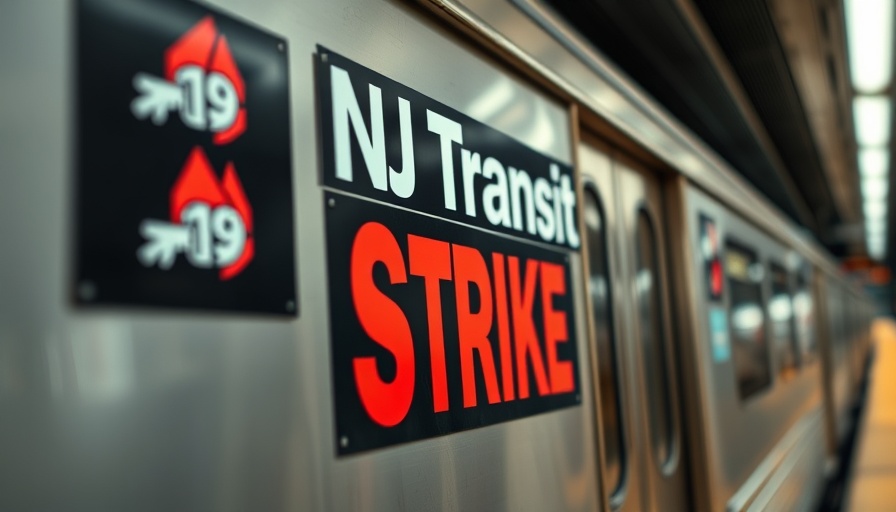
Massive Transportation Disruption Looms as NJ Transit Strike Threatens Commuters
A potential strike by locomotive engineers could bring New Jersey’s rail services to a standstill, affecting approximately 350,000 daily commuters who rely on NJ Transit for their journeys into New York City. With the clock ticking toward a midnight deadline for a contract agreement, negotiations remain ongoing, with New Jersey Governor Phil Murphy’s administration reportedly deeply involved.
In 'New Jersey Transit issues warning for riders ahead of potential rail strike,' the video highlights the urgent negotiations between NJ Transit and its engineers. We unpack what a strike could mean for commuters and the broader implications for the region.
Understanding the Stakes: Why a Strike Matters
The urgency of the current negotiations highlights the precariousness of labor relations in the transportation sector. As commuters like Stacy Garcia express hope for a resolution, the stakes extend beyond mere inconvenience. The engineers, demanding higher wages, characterize themselves as the lowest-paid locomotive engineers across all U.S. commuter railroads. This assertion raises fundamental questions about wage equity and fair labor practices in a critical public transportation system.
Impact Beyond Transportation: Consequences for Events and Daily Life
The impending strike does not only jeopardize the daily commute. It also threatens community events. For instance, fans planning to attend concerts, such as Shakira’s performances at MetLife Stadium, would find themselves stranded without transportation options, further complicating an already tense situation. As AAA suggests, passengers should prepare for disruptions by considering alternatives like carpooling or working from home.
Historical Context: The Cycle of Negotiations
This crisis is not an isolated incident but part of a broader trend in labor negotiations within the mass transit industry. In March, NJ Transit had reached a tentative agreement to raise wages, but union membership rejected it, illustrating the ongoing challenges in reaching acceptable compromises. Such instances underscore the historical volatility within transit negotiations, where both unions and transit agencies must balance budget constraints with employee satisfaction.
Potential Actions: How Commuters Can Prepare
With the likelihood of a strike now a pressing concern, NJ Transit is implementing temporary measures to alleviate the impact. Supplemental bus services are being added at select park-and-ride locations, although these will only accommodate roughly 20% of typical rail ridership. Officials recommend commuters reach their final destinations before 11:59 PM, pushing for proactive measures to mitigate the potential impact of this disruption.
Future Insights: Potential Outcomes and Long-term Effects
Should a strike occur, the ramifications could resonate beyond immediate transportation issues. A sustained disruption in rail services could reshape commuting habits and impact local economies, necessitating a reckoning from both the state and its transit authority about how best to address worker compensation and operational stability.
Call to Action: Stay Informed, Stay Prepared
As negotiations continue to unfold, staying informed will be crucial for affected individuals. Commuters should actively monitor developments and remain adaptable, considering alternative modes of transportation or schedules. Additionally, engaging in community discussions about public transit can foster a greater understanding and potentially lead to sustainable improvements in the system.
The NJ Transit strike stalemate raises critical questions about labor relations and public infrastructure. As residents and visitors in Pennsylvania consider their own transportation needs, this situation serves as a reminder of the importance of understanding and advocating for fair labor practices. Being informed is the first step in preparing for any changes that may affect your daily commute.
 Add Row
Add Row  Add
Add 




 Add Row
Add Row  Add
Add 

Write A Comment